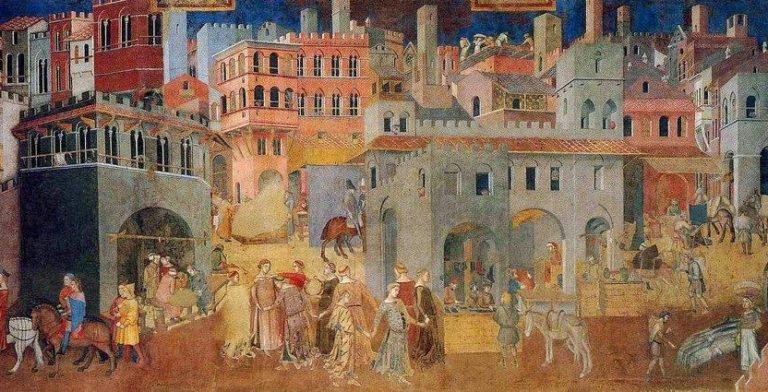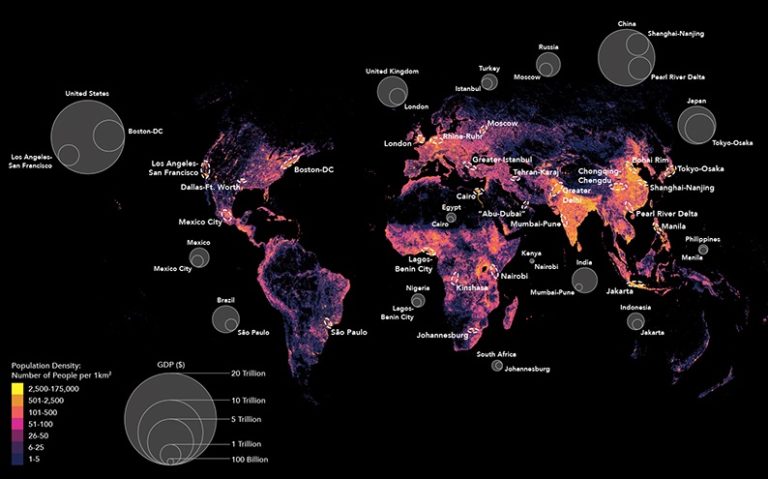
After a turbulent 2017 full of Trump’s tantrums and Britain’s shambolic lurch towards Brexit, what might 2018 bring us? In this article written for Wired magazine’s annual publication, The Wired World in 2018, I argue that we may well see the return of the Renaissance city state…
THE RETURN OF THE CITY STATE
The 279 US city mayors who pledged to support the Paris Agreement on climate change in June 2017 are the latest sign of a trend that will crystallise in 2018: the growing prominence and autonomy of cities around the world, on a scale not seen since the age of Renaissance city-states such as Florence or Venice.
An increasing proportion of the world’s population is living in megacities, from the 12-million-population Greater Sao Paulo to the Taiheiyō Belt megalopolis in Japan, which is home to more than 80 million people. The United Nations predicts that by 2030 there will be 41 megacity clusters containing two-thirds of the world’s population.
These cities, which are the economic powerhouses of the countries in which they exist, are becoming political powerhouses too. They’ve been organising into interdependent networks, such as the Global Parliament of Mayors, the C40 global network of cities committed to acting on climate change, and the Rockefeller Foundation’s 100 Resilient Cities. These networks have accumulated enough organisational experience and influence to make a significant mark in 2018 in international arenas such as COP24, the UN Climate Change Conference to be held in Poland in December 2018.
We may also see new initiatives of what the international-relations expert Parag Khanna calls “diplomacity”, where cities make independent trade agreements with one another, much like the cities of the Hanseatic League did in northern Europe in the 15th and 16th centuries.

The growing autonomy and influence of cities has risen due to several factors. One is the global trend towards devolution. In England and Wales, for instance, there were no directly elected mayors at the start of the millennium. Now there are 23 and their electoral contests are attracting an increasing number of high-profile candidates.
A second trend is that cities are leading tech innovation, such as the smart-bus network to be introduced in the Chinese smart city of Zhuzhou in 2018. They are also at the forefront of energy transitions from fossil fuels to renewables. For example, the Indian government has created a masterplan for establishing 50 solar cities and the state of Chhattisgarh is due to make huge investments in local solar generation in 2018 as part of its Development in Solar Cities Programme.
A final, overarching trend is a growing recognition that nation-states are – compared with cities – unfit for modern challenges. They have failed to deal effectively with issues arising from migration, climate change, wealth inequality and terrorism. This failure partly explains the declining faith in traditional political parties in many countries and in the value of democratic government itself. But it is also behind the rise of cities, which are much more effective at pragmatic problem-solving on issues ranging from flood management to dealing with increasing numbers of refugees.
It’s worth remembering that nation-states are a new historical invention and have only been the dominant form of political organisation for the past two centuries. Cities, in contrast, are the greatest and most enduring social technology ever invented by humankind. That is why cities such as Istanbul have lasted thousands of years, while empires and nations have risen and fallen around them.
It is true that nations will not disappear quickly or completely, but we may remember 2018 as the year of the return of the Renaissance city-state. Get ready for bold initiatives from cities and their mayors in areas such as global warming, while national political parties bicker with each other and intergovernmental conferences remain locked in stalemate. The ancient ideal of the polis is back.
Roman Krznaric is a social philosopher. His latest book is Carpe Diem Regained.
The article originally appeared in The Wired World in 2018